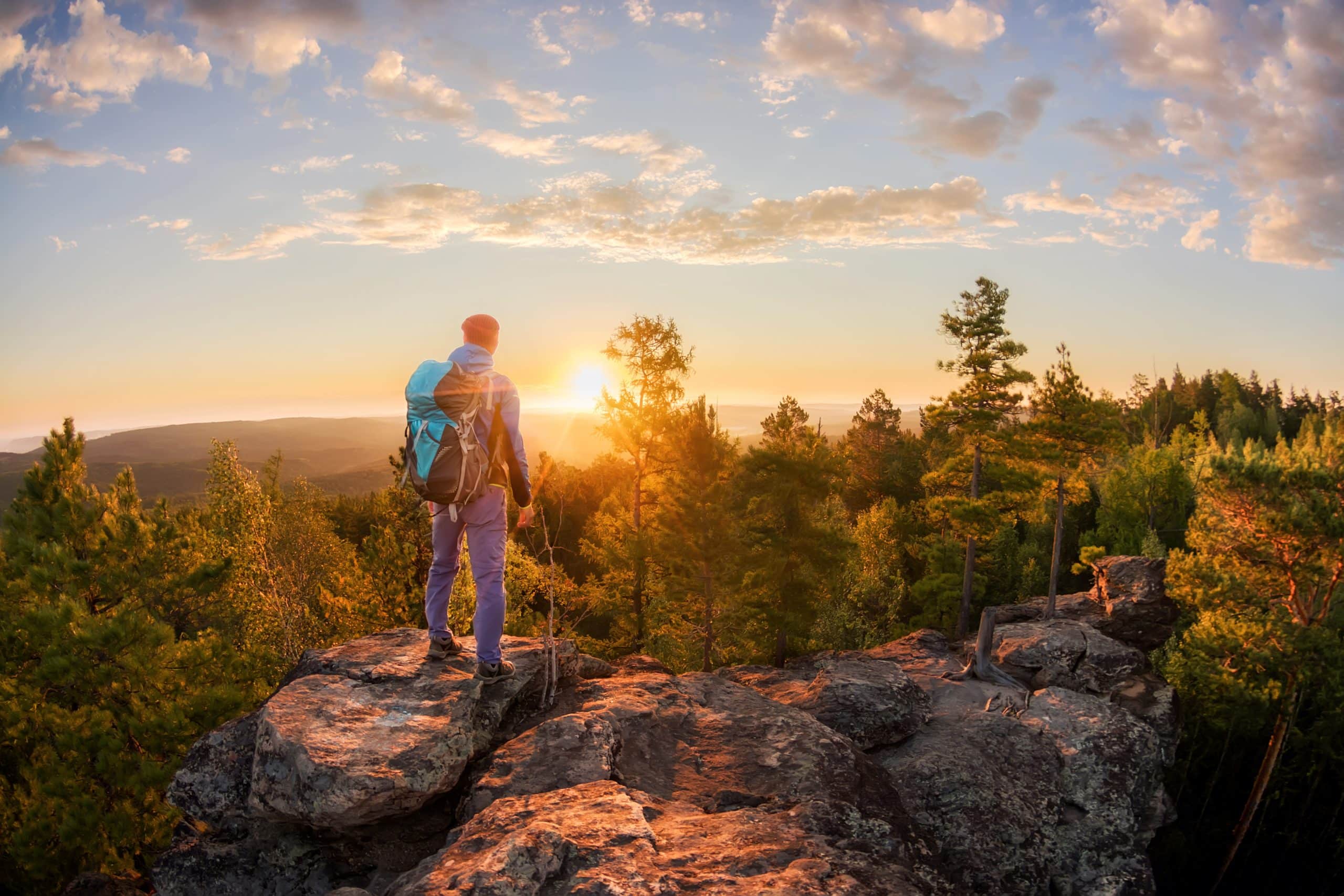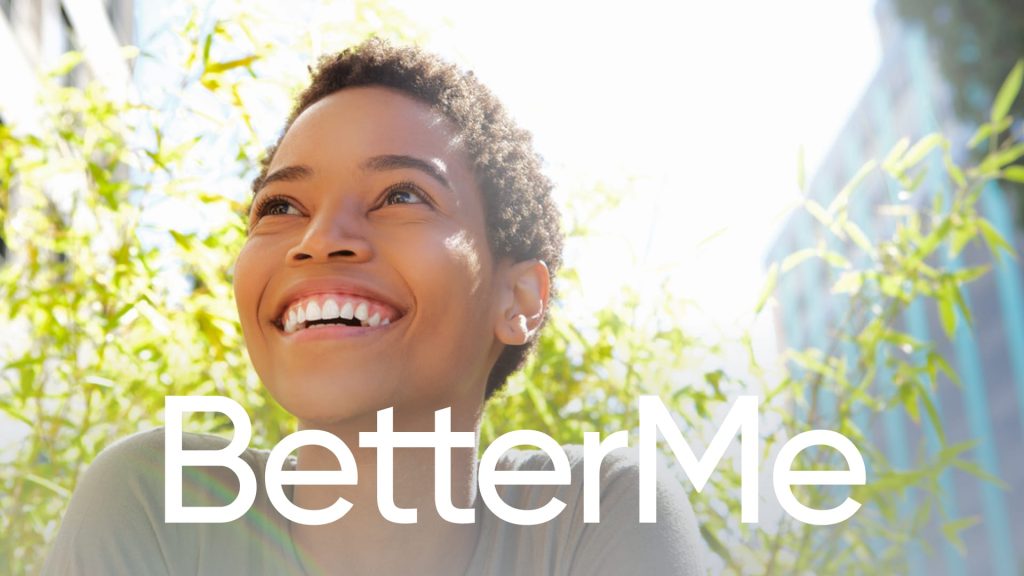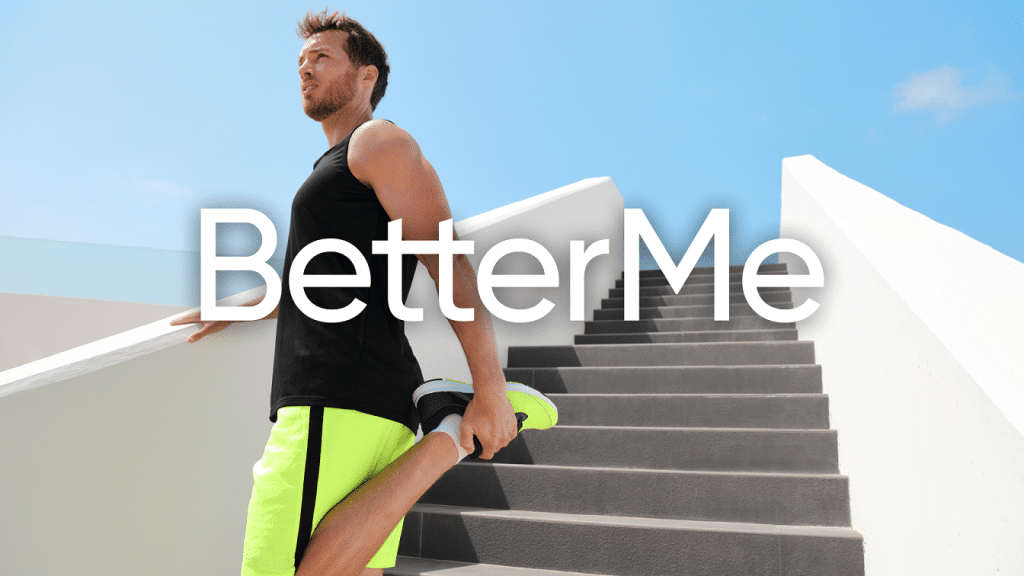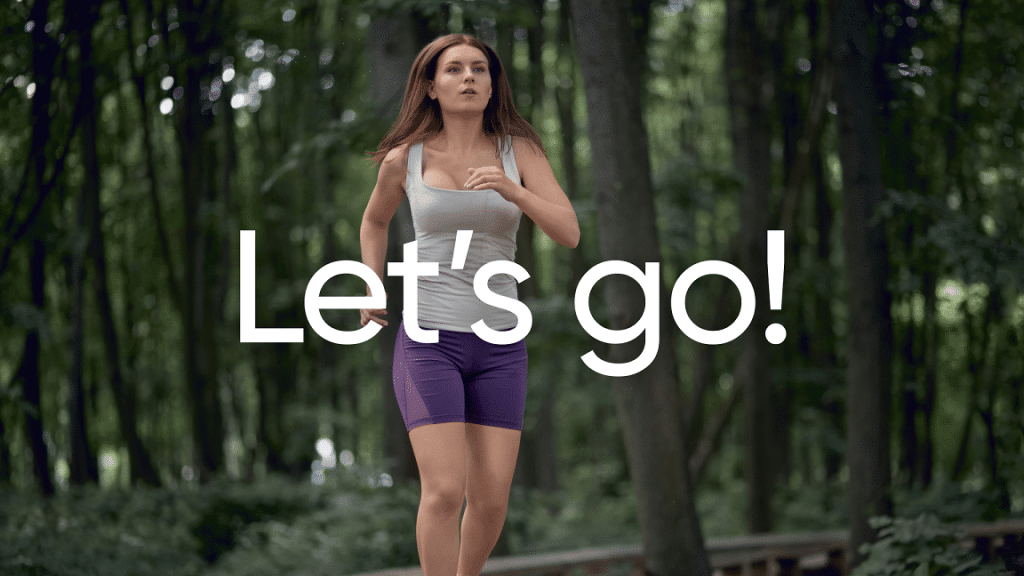Exercising outdoors is linked to several health benefits, both physical and mental. One popular outdoor activity that offers such benefits is hiking. It is not only about the fresh air or the stunning views, but also the significant number of calories you can burn on the trail.
The simple act of moving uphill, navigating uneven terrain, and carrying a backpack can make a leisurely walk a high-intensity workout.
In this comprehensive guide, we will explore the factors that influence how many calories are burned when hiking, including weight, hike difficulty, and the type of terrain.
We’ll also provide tips on how you can maximize your calorie burn and make your hiking adventure a powerful tool in your fitness arsenal. Hiking may be exactly what you need for your summer weight loss plans and this article will tell you why.
The Calories Burned Hiking Aren’t The Same In Every Case
On average, hiking burns approximately 400 to 550 calories per hour (3). However, the concept of “one size fits all” doesn’t apply when it comes to calculating the number of calories burned during hiking.
Various factors come into play, including body weight, metabolism, intensity, and duration of hike, in addition to the type of terrain you’re tackling. Essentially, the energy expenditure of two individuals on the same trail may vary significantly.
For example, the calories burned hiking uphill for an hour can be significantly more – between 600 and 800 calories – due to the added exertion of climbing (2).
At the same time, the calories burned when hiking downhill are typically less, as gravity assists in your movement, but it’s still a decent burn at around 300 to 400 calories per hour (2).
Regarding distance, the calories burned hiking for one mile can vary significantly based on the terrain and your pace, but on average, you can expect to burn approximately 200 to 250 calories per mile (2).
For a shorter hike, the hiking calories burned in 30 minutes are roughly half of what you’d burn in an hour, so if you’re burning 500 calories per hour, a 30-minute hike will burn approximately 250 calories (3).
The weight of your backpack also influences the number of calories you burn while hiking. Carrying a heavier load requires more energy, thereby increasing calorie expenditure.
Looking for a way to break the vicious cycle of weight loss and tone up all the jiggly parts? Watch the extra pounds fly off and your muscles firm up with the BetterMe app!
In addition, factors such as altitude and air temperature can also play into your overall energy expenditure. Hiking at a high altitude can require more energy due to the thinner air and increased demand that is placed on your cardiovascular system.
Similarly, hiking in cold temperatures can increase calorie burn as your body must work harder to maintain its core temperature.
Finally, incorporating more challenging hiking techniques, such as scrambling or boulder hopping, can greatly enhance caloric burn. These activities engage more muscle groups and require a higher level of effort than simple walking.
It is important to remember that while it’s useful to understand how many calories you’re burning, the most important thing is that you’re getting outside, being active, and enjoying nature. Hiking is about more than just fitness; it’s a holistic experience that combines physical activity with the restorative power of the outdoors.
Calories Burned Hiking vs Running
Calories Burned Hiking vs Running: hiking and running are both effective forms of exercise that can help burn calories, but they do so at different rates and provide different benefits.
Running typically burns more calories per minute than hiking as it involves moving at a faster pace and requires more effort, particularly if you run at moderate to high intensity.
Therefore, if you’re looking to maximize your calorie burn in a short amount of time, running may be the best option.
However, while running burns more calories per minute, hiking has its own advantages that make it more effective for burning calories overall. Hiking often involves the navigation of challenging terrain and steep inclines, which increases workout intensity.
Furthermore, people can usually hike for longer periods than they can run, which leads to a higher total calorie burn. For example, a 3-hour hike burns more calories than a 1-hour run, even though the per-minute calorie burn is lower.
In terms of calories burned per mile, both activities are similar. You can expect to burn approximately 100 calories per mile when hiking or running (4). However, the number of calories you burn is also dependent on factors such as your weight, the intensity of the activity, elevation, and terrain.
While running may be a more vigorous cardiovascular activity, hiking also provides a significant cardio workout, particularly if you’re tackling tough trails. In addition, hiking can be gentler on the joints than running, which reduces the risk of injury.
Both hiking and running contribute to weight loss and improved fitness when combined with a healthy diet. The best choice of the two often comes down to personal preference. Some people may enjoy the challenge and fast pace of running, whereas others may prefer the slower pace and scenic views offered by hiking.
Calories Burned Hiking vs Walking
Hiking and walking are both excellent forms of exercise, but they burn calories at different rates due to their varying intensity levels.
Hiking is generally a higher-intensity workout than walking. This is largely due to the more rugged and steep terrain encountered when hiking. The uneven ground and inclines make the body work harder, which results in a higher calorie burn.
On average, hikers burn approximately 50% more calories than someone who walks on level ground at the same pace (5).
Walking is normally performed on flat, even surfaces such as sidewalks or walking paths. While it’s less intense than hiking, walking still offers a decent calorie burn, particularly when doing so at a brisk pace.
The exact number of calories you’ll burn performing either activity is dependent on several factors, including your weight, the intensity of the activity, and workout duration. For example, a heavier person will burn more calories than a lighter person doing the same activity.
Similarly, a more intense or longer workout will burn more calories than a less intense or shorter workout.
However, you can generally expect to burn more calories per hour when hiking than when walking. Some sources suggest that hiking can burn anywhere from 400 to 550 calories per hour, depending on the difficulty of the hike, whereas walking at a moderate pace may burn between 200 and 350 calories per hour (3).
While both activities can contribute to weight loss and improved fitness, the choice between hiking and walking often comes down to personal preference and what best suits your lifestyle.
Some people may prefer the challenge and adventure of hiking, whereas others may enjoy the convenience and ease that walking offers. Either way, hiking and walking both offer several health benefits, so neither choice is wrong.
Read more: What Causes Belly Fat in Females? 18 Root Causes Revealed and 4 Ways to Tackle Them.
Is Hiking a Good Way To Lose Weight?
Yes, hiking is an excellent way to lose weight. It is a powerful cardio workout that can:
Burn Calories
Depending on factors such as your weight, the incline, and speed of your hike, you can burn hundreds of calories each hour. This can contribute to a calorie deficit, which is essential for weight loss.
Build Strength
Hiking isn’t just a cardio workout, it’s also great for building strength in the glutes, quadriceps, hamstrings, and the muscles in the hips and lower legs. This will help increase muscle mass, which can boost your metabolism and increase the number of calories you burn at rest.
Improve Balance
Uneven terrain and navigating around rocks and roots can help improve your balance and stability, which is important for overall fitness and the prevention of injuries (1).
Boost Mood
Spending time in nature and getting regular exercise can both contribute to improved mood and reduced symptoms of stress and anxiety (1). This can indirectly support weight loss as it helps you maintain a consistent exercise routine and make healthier food choices.
Increase Endurance
As you hike more regularly, you’ll start to notice improvements in cardiovascular fitness and muscular endurance (1). This means you’ll be able to hike for longer and at higher intensities, helping you to burn more calories.
Promote Better Sleep
Regular physical activity such as hiking can help you fall asleep more quickly and deepen your sleep. Adequate sleep is essential for weight loss and management as it helps regulate hormones that control appetite and metabolism (1).
Does Hiking Burn Belly Fat?
Yes, hiking can help burn belly fat. However, it should be noted that while you cannot target specific areas for fat loss, which is known as spot reduction, hiking can contribute to overall body fat loss, including the belly.
Hiking is a form of cardiovascular exercise and it is known to be effective in burning calories and fat.
When you hike, your body requires energy, and it gets this from burning calories. If your body is in a calorie deficit (burning more calories than you consume), stored fat will be used for energy, which includes belly fat.
Furthermore, hiking often involves navigating uneven terrain and steep inclines, which can increase workout intensity and result in a higher calorie burn compared to when walking on a flat surface. This increased intensity can further contribute to fat loss.
In addition to burning fat, hiking can help build muscle, particularly in the lower body. Increased muscle mass can boost your metabolism, which leads to a higher calorie burn even when at rest, further supporting fat loss (1).
While hiking is an effective tool for fat loss, it is important to combine it with a balanced diet to achieve the best results. The consumption of nutrient-dense, whole foods can help ensure your body has the fuel it needs for your hikes, while also helping to create a calorie deficit for fat loss.
Finally, consistently following a balanced diet and hiking every week rather than taking an occasional hike will help keep your body in a calorie deficit, which is essential for burning fat. Adding two or three rest days per week can help ensure you get adequate recovery time between hikes and prevent injury.
When it comes to weight loss, progress is made by inches, not miles, so it’s much harder to track and a lot easier to give up. BetterMe app is your personal trainer, nutritionist and support system all in one. Start using our app to stay on track and hold yourself accountable!
How To Start Hiking
How To Start Hiking? Starting hiking can be a rewarding experience that provides both physical and mental benefits. Here are some steps to help you get started on your journey:
Start Small
Start with short, local hikes that are less challenging. This will help build up your stamina and acclimatize your body to the rigors of hiking. You should gradually increase the length and difficulty of your hikes as your fitness improves.
Get the Right Gear
Investing in good hiking gear is essential for comfort and safety. Essential items include sturdy, comfortable hiking boots, a backpack, a water bottle, sunscreen, a hat, and layered clothing that is suitable for changing weather conditions.
Depending on the terrain and length of your hikes, you may also require hiking poles, a map or GPS, a compass, a first-aid kit, and camping equipment.
Stay Hydrated and Pack Snacks
You should always carry sufficient water for your hike and remember to drink regularly to remain hydrated. High-energy snacks such as trail mix, energy bars, fruits, and sandwiches can also be useful for maintaining energy levels during the hike.
Plan Your Route
Before you set off, you should research your route thoroughly. It is important to know the length, estimated duration, difficulty level, and any potential hazards of the trail. You should also check the weather forecast for the day of your hike.
Hike with Others
Particularly when you’re just starting out, it’s a good idea to hike with others. Not only can this be more fun, but it’s also safer. If you don’t have friends or family who are interested in hiking, you could consider joining a local hiking club.
Leave No Trace
Respect nature by following the Leave No Trace principles. This includes disposing of waste properly, leaving everything as you find it, respecting wildlife, and being considerate of other visitors.
Take Breaks
You must not push yourself too hard. Take regular breaks to rest, hydrate, and enjoy your surroundings. Remember, hiking is about the journey, not only the destination.
Safety First
Always let someone know where you’re going and your expected time of return. You should carry a basic first aid kit and learn how to use it. If you’re hiking in a remote area, consider carrying a whistle or a personal locator beacon in case of emergencies.
Read more: Maximize Your Fitness With Calorie Deficit Breakfasts.
Frequently Asked Questions
How many calories are burned on a 1-hour hike?
The number of calories burned during a one-hour hike can vary significantly, based on factors such as your weight, the terrain, and the intensity of the hike. You can generally expect to burn between 300 and 600 calories per hour (3).
How many calories do you burn on a 3-mile hike?
Assuming an average pace and terrain, a person who weighs 150 pounds may burn approximately 240-300 calories on a 3-mile hike (2). This can vary, based on factors such as individual metabolism, hiking speed, and difficulty of the trail.
How many calories are burned on an 8-mile hike?
Depending on your weight, the terrain, and your pace, an 8-mile hike can burn between 800 and 1,600 calories.
How many calories does a 2-mile hike burn?
A person who weighs approximately 150 pounds may burn roughly 150-200 calories during a 2-mile hike. This can vary based on individual metabolism, hiking speed, and trail difficulty.
Is hiking just cardio?
While hiking is a great cardiovascular workout, it isn’t only cardio. It also strengthens and tones your muscles, particularly in the legs, core, and lower back.
Can you get in shape just by hiking?
Yes, regular hiking can help you get in shape. It burns calories, builds muscle strength and endurance, improves cardiovascular health, and improves flexibility and balance.
Is hiking better than cardio?
Hiking is a form of cardio and whether it’s better than other forms is dependent on your goals and preferences. Hiking provides a full-body workout and can be more engaging and enjoyable for some people than traditional forms of cardio such as running or cycling.
How many miles is it reasonable to hike in a day?
For beginners, a daily distance of 5 to 8 miles is quite reasonable. More experienced hikers may cover 10 to 12 miles or more in a day. Factors such as the difficulty of the terrain and the hiker’s fitness level will affect these numbers.
How many miles can you realistically hike in a day?
Depending on the terrain and your fitness level, you may be able to hike anything between 10 and 20 miles in a day. However, most people find that 8 to 10 miles is a comfortable distance for a day hike.
Does hiking build muscle?
Yes, hiking can help build muscle, particularly in the legs and core. The challenge of walking on uneven terrain and uphill provides an excellent strength training workout.
The Bottom Line
Hiking is not just an enjoyable outdoor activity, it is also a great way to burn calories and improve your fitness. The number of calories you will burn while hiking is dependent on a variety of factors, including your weight, the terrain, and the intensity of the hike.
Whether you’re a seasoned hiker or are just starting out, understanding how hiking contributes to your fitness can help you make the most of your time spent on the trails.
Get your personalized
meal plan!
DISCLAIMER:
This article is intended for general informational purposes only and does not serve to address individual circumstances. It is not a substitute for professional advice or help and should not be relied on for making any kind of decision-making. Any action taken as a direct or indirect result of the information in this article is entirely at your own risk and is your sole responsibility.
BetterMe, its content staff, and its medical advisors accept no responsibility for inaccuracies, errors, misstatements, inconsistencies, or omissions and specifically disclaim any liability, loss or risk, personal, professional or otherwise, which may be incurred as a consequence, directly or indirectly, of the use and/or application of any content.
You should always seek the advice of your physician or other qualified health provider with any questions you may have regarding a medical condition or your specific situation. Never disregard professional medical advice or delay seeking it because of BetterMe content. If you suspect or think you may have a medical emergency, call your doctor.
SOURCES:
- 9 Benefits of Hiking (2022, clevelandclinic.org)
- Calories Burned Hiking Calculator (n.d., caloriesburnedhq.com)
- CALORIES BURNED PER HOUR (2005, dhs.wisconsin.gov)
- How many calories does running burn? It’s probably more than you think (Women & Home) (2023, acefitness.org)
- Walking’s ‘sister activity’ may burn more calories (2021, cnn.com)












